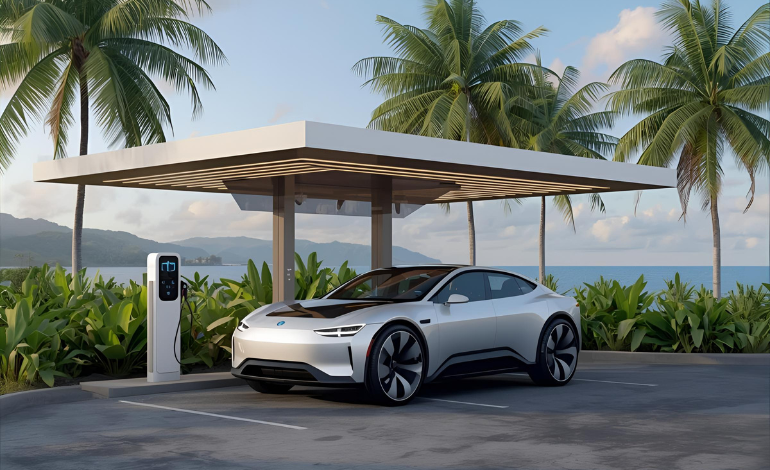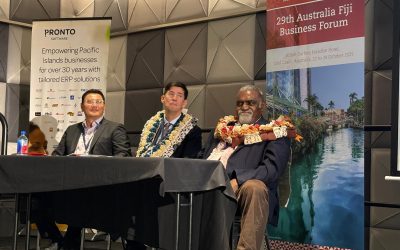Fiji’s transition to electric transport is gathering pace following parallel developments in workforce training and vehicle supply partnership with China.
One of Fiji’s largest industrial groups, the FMF Group, has confirmed that a team of its technical staff are currently undertaking electric vehicle (EV) training in China. The programme covers EV systems diagnostics, battery maintenance, charging infrastructure operation and safety protocols. The company said the training is a strategic step toward preparing Fiji’s industrial and logistics sectors for the gradual adoption of low-emissions fleets.
Building a pool of skilled technicians is viewed as essential for supporting long-term reliability and consumer confidence. Industry analysts note that without trained maintenance personnel, the introduction of EVs risks higher downtime, slower repair cycles and increased lifetime costs.
The workforce initiative coincides with the launch of a new China-Fiji New Energy Vehicle (NEV) export project based in Kunming. The project will enable the supply of electric vehicles along with supporting infrastructure such as solar power systems, battery storage units and commercial-scale charging stations. Provincial authorities in Yunnan are backing the programme, which aims to scale EV deployment in Fiji across both public and private fleets. Initial export values have been discussed in the tens of millions of US dollars annually.
The coordinated approach is considered significant. Training technicians without access to vehicles and parts can limit practical application, while importing EVs without the maintenance ecosystem risks poor uptake. By linking the two, Fiji is seeking to create a functioning EV supply chain rather than isolated pilot deployments.
Early adoption is expected in sectors where vehicles clock high mileage and where fuel and maintenance savings are most pronounced, including utility fleets, municipal transport, airport ground handling and delivery logistics. Broader consumer uptake will depend on financing options, warranty coverage and the availability of public charging points.
Fiji’s position as an aviation and maritime hub in the Pacific gives it an opportunity to influence EV standards and servicing practices across neighbouring island markets. Challenges remain, including foreign exchange exposure on imported equipment, grid stability requirements and the need to establish battery recycling systems.



